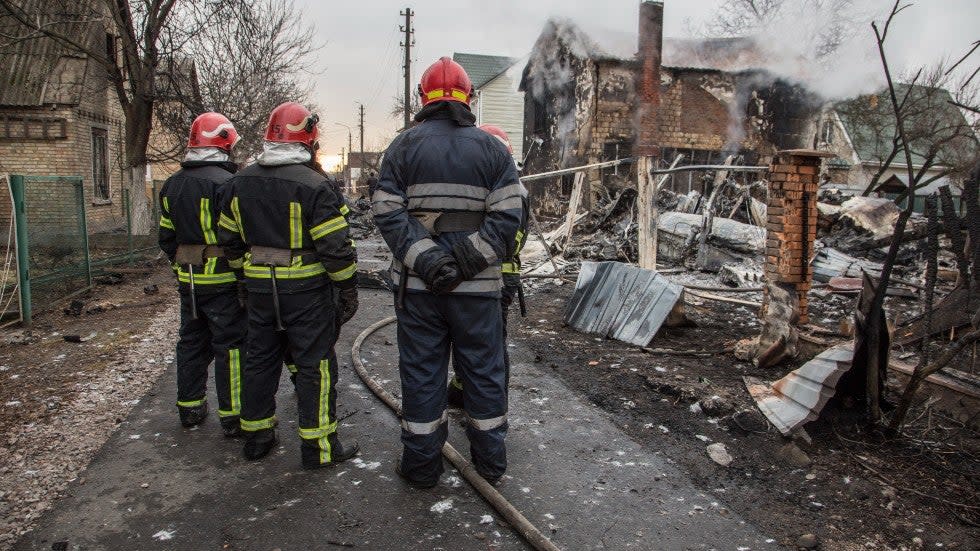NATO activates response force for first time in history

NATO, for the first time in its history, is activating its NATO Response Force (NRF) in response to Russia's invasion of Ukraine.
"We have activated NATO's defense plans to prepare ourselves to respond to a range of contingencies and secure Alliance territory, including by drawing on our response forces," NATO heads of state and government said in a joint statement released Friday after the alliance held a virtual summit.
"We are now making significant additional defensive deployments of forces to the eastern part of the Alliance. We will make all deployments necessary to ensure strong and credible deterrence and defense across the Alliance, now and in the future."
The leaders stressed the moves "are and remain preventive, proportionate and non-escalatory."
The extraordinary move marks the first time NATO has activated the NRF, a multinational force comprised of around 40,000 land, air, maritime and special operations personnel the alliance can deploy on short notice as needed. All 30 members of NATO must agree to activate the force, which they did on Thursday.
The Pentagon in January put 8,500 U.S. troops on heightened alert for such a mission, and with the NRF now activated, those troops could soon be ordered to Europe to help bolster NATO countries near Ukraine. President Biden has stressed, however, that they will not go to Ukraine as it is not a member of the alliance.
Supreme Allied Commander of NATO Gen. Tod Wolters, the head of the NRF, called the force's activation a "historic moment" according to a statement.
"They represent a flexible, combat credible force that can be employed in multiple ways and we are utilizing fully their inherent agility," Wolters said. "These deterrence measures are prudent and enhance our speed, responsiveness and capability to shield and protect the one billion citizens we swore to protect."
The force is still on standby and has not yet been deployed.
In addition, NATO has "deployed defensive land and air forces in the eastern part of the Alliance, and maritime assets across the NATO area," according to its statement.
The alliance also reaffirmed its "unwavering support for the independence, sovereignty and territorial integrity" of Ukraine, and pledged continued "political and practice support" to its government.
Speaking to reporters after the summit, NATO Secretary General Jens Stoltenberg said the U.S., Canada and European allies have deployed "thousands of more troops to the eastern part of the alliance," with more than 100 jets and 120 ships operating on high alert in more than 30 locations.
Stoltenberg also again called on Russia to stop its attack on Ukraine.
"We call on Russia to stop this senseless war, immediately cease its assaults, withdraw all of its forces from Ukraine and turn back to the path of dialogue and turn away from aggression," he said.
He warned that the alliance is facing a new normal in European security, and that "the world will hold Russia and Belarus accountable for their actions - Russia as the aggressor, Belarus as the enabler."
The United States has already deployed or repositioned roughly 15,000 American troops to locations in Germany, Romania and Poland. Russia Russian President Vladimir Putin early on Thursday launched a military operation into Ukraine. Hundreds of Ukrainian citizens have since been killed or wounded.

